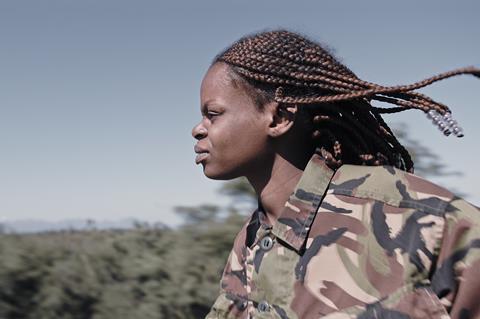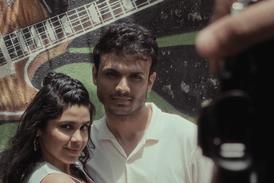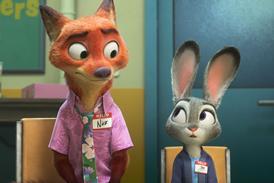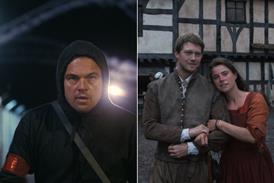Lena Karbe’s exploration of South Africa’s Black Mamba anti-poaching unit reveals colonial structures still in place

Dir: Lena Karbe. Germany/France. 2022. 81 mins.
In 2013, with rhino poaching in the Kruger National Park in South Africa at an all-time high, an all-female anti-poaching unit was founded. They were named the Black Mambas; over several years the team expanded to employ some forty-five women from neighbouring communities, providing a lifeline to families at a time of high unemployment. The level of rhino poaching dropped dramatically. But this documentary by Lena Karbe is not quite the uplifting tale of female empowerment and conservation triumph that it might initially seem. Karbe gradually pulls back to reveal the colonial structures which are still, very firmly, in place and which act as a barrier between the women and any aspiration they might have to advance their careers.
When the wildlife reserves were founded, it was done without consideration of the needs and rights of the Black people.
It is the first feature from Karbe, who has previously served as a producer on several projects and who directed Chinese Dream, a mid-length television documentary about African emigration to China. Black Mambas is an astute, unshowy film which follows three well-chosen characters – new recruit Naledi, working mother Qolile and ambitious Nkateko – while gradually revealing some fairly uncomfortable truths about the power dynamics and institutional racism within their working environment. Further festival screenings are likely, both in documentary-themed events and those which focus on women’s issues.
We are introduced to Naledi at the very start of the film when she puts on her camo-style Black Mambas uniform for the first time. “I am so proud of myself,” she beams. But her journey, like the film itself, is interrupted by the pandemic. When we re-join her, a year later, much has changed. The impact of Covid-19 on tourism has had a ruinous effect on the local economy. Poaching ‘bushmeat’ from the reserve is, says empathetic Nkateko, sometimes the only way that a parent can feed their family. “We fight with the white people because they use our things,” says an anonymous poacher, pointing out that when the wildlife reserves were founded, it was done without consideration of the needs and rights of the Black people.
What hasn’t changed, however, is the job. Naledi and her colleagues walk the same seven-kilometre stretch of perimeter fence every morning, endure the same quasi-militaristic drill training from the predominantly white and male management team. Naledi’s early enthusiasm seems to have been ground down. Nkateko, meanwhile, is highly motivated. She, alone, supports her family. Following the early death of her father, she took on the role of protector. In the future, she would like to train as a safari guide. But capable and unflappable as she is, her immediate supervisor micromanages and talks down to her. He is florid of face and old-school in attitude: “I knock them down a bit,” he says of the Mambas who come to work with him. He teaches them “how to handle a bank account, not to lie, how to be not a drama queen.” He adds, by way of explanation, “They are all girls…”
The founder of the Black Mambas, Craig Spencer, clearly values the women more but even so his comments suggest that the all-female anti-poaching squad may have been conceived as a marketing device first and foremost. “I don’t want soldiers,” he says emphatically, before adding that he encourages the recruits to wear lipstick and earrings. “Women bring values to this arena,” he adds, vaguely. Finally, though, there’s a moment of insight: Spencer admits that the park is the “last Bastille (sic)” of the old, white colonial mindset and that “This can’t be a dead end job for a Mamba.” It’s a realisation which may have come a little too late for some of the disillusioned and unmotivated women on the poaching frontline of the Kruger National Park.
Production Companies: Karbe Film, Day For Night
International Sales: Autlook Filmsales GmbH welcome@autlookfilms.com
Producers: Lena Karbe, Jan Vasak
Screenplay: Lena Karbe, Tristan Coloma
Cinematography: Mateusz Smolka
Editing: Georg Michael Fischer
Music: Rémi Alexandre























